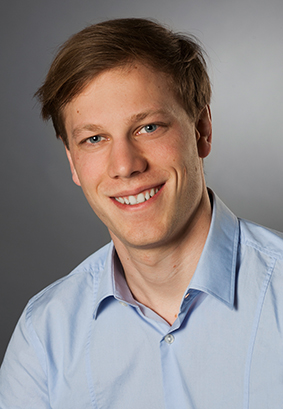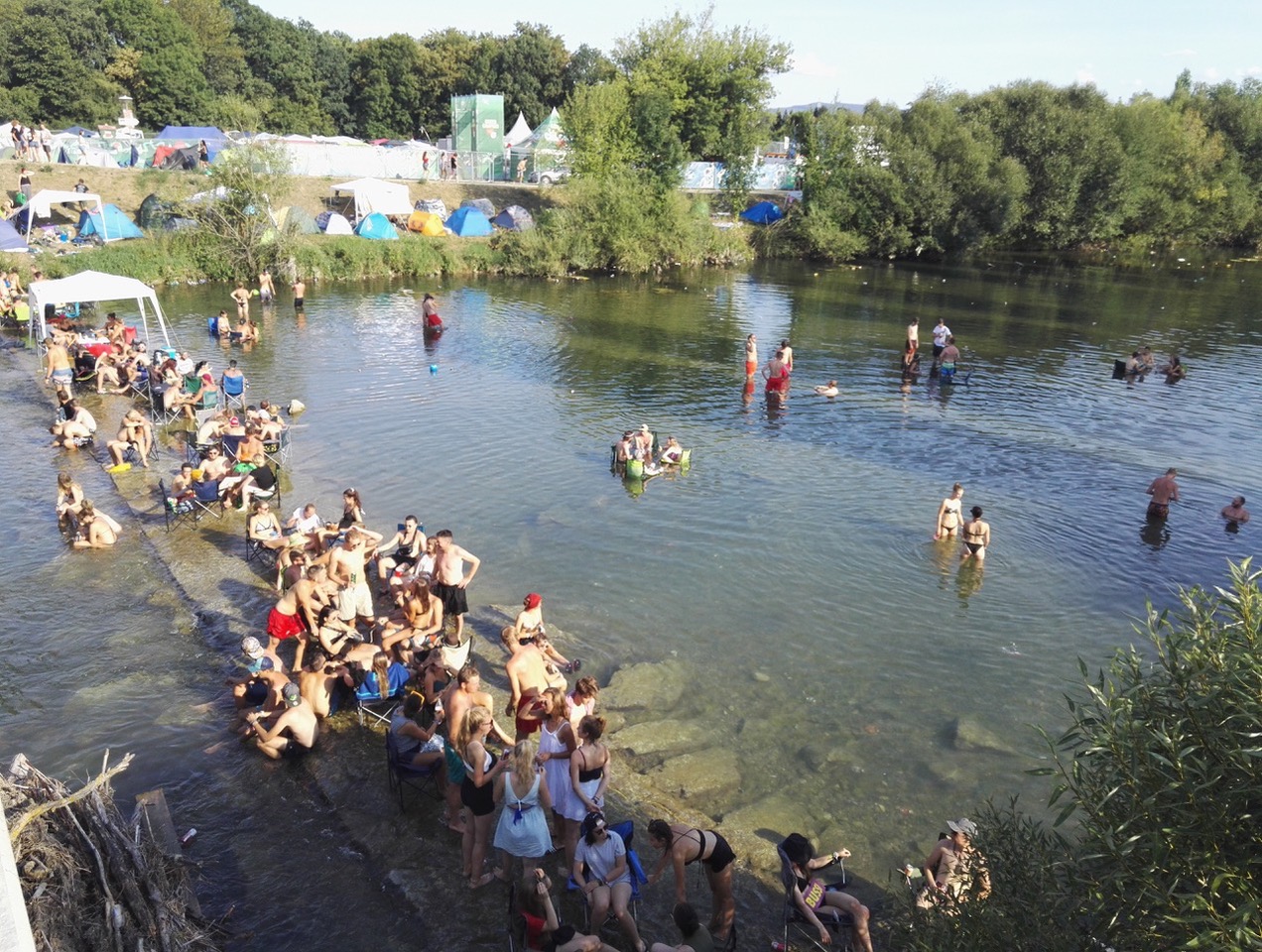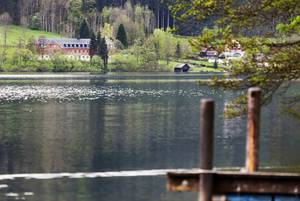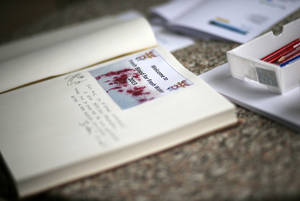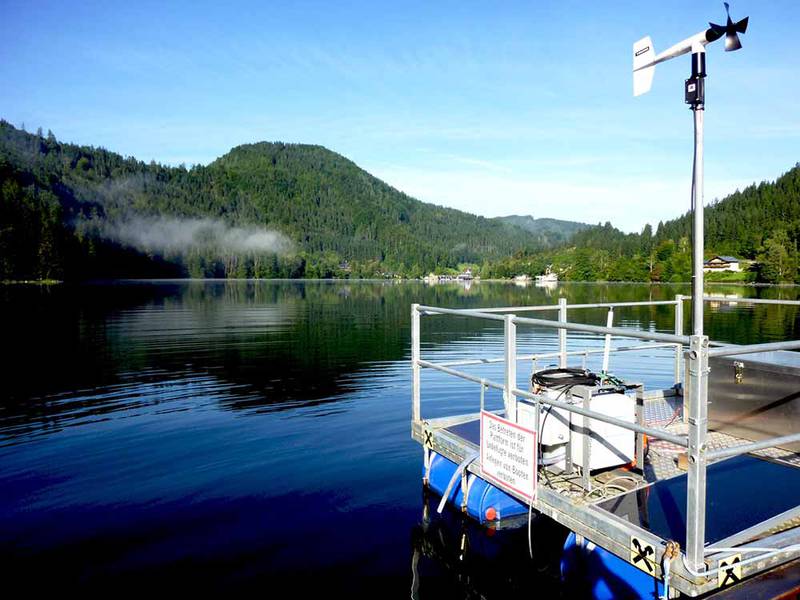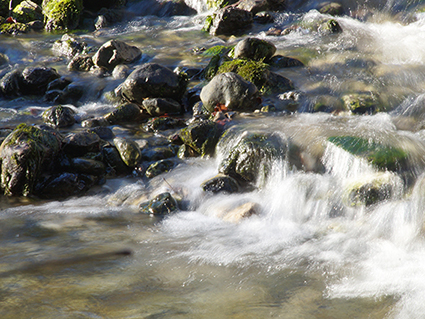In May 2020 Paul Plank finished successfully his MSc-thesis with the title "Makrophytenvegetation, ihre Standortfaktoren und Monitoring im Lunzer See" under Supervision from Georg Bernhardt (BOKU) and Co-Supervision from Robert Ptacnik (AG AQUASCALE).
Congratulation!
Researchers from the WasserCluster Lunz and the University of Vienna have investigated which organic substances are introduced to the Traisen River in Austria by the approximate 100.000 visitors of the FM4-Frequency Festival every year and how these substances influence river metabolism. The study now published in the scientific journal "Environmental Science & Technology", shows for the first time the possible consequences of intense recreational use of running waters on the river carbon cycle.
Link to article (Open Access).
Until Tuesday 11.08.2020 there is still the possibility to listen to the report "Forschung am Lunzersee" in the series "Sommertour" on the Radio NÖ website.
Learn more about the work at the WasserCluster Lunz, how the temperature of the Lunzer See is developing and which further effects this has on the ecosystem.
Here you find the report: https://radiothek.orf.at/noe/20200803/NNA/1596460639000
In July 2020 Michael Kolmar finished successfully his MSc-thesis with the title "Effects of an anaerobic filter module on water quality in koi ponds and recirculating aquaculture systems (RAS)" under Supervision from Thomas Hein and Gabriele Weigelhofer (AG BIGER).
Congratulation!
On Friday 31st July 2020 the Memorial of the artist Florian Pumhösl was opened. The five meter wide and three meter high work of art was created against the background of the history of the building of today's WasserCluster Lunz and features a part of the ballot for the election of the Greater German Reichstag and for the Refer-endum on the Reunification of Austria with the German Reich on the 10th of April 1938. It points to the danger of undermining democratic principles in a society. "The memorial is intended to raise our awareness of the importance of fundamental democratic values and the responsibility we carry as a society to guarantee open-mindedness and solidarity", says Thomas Hein (Managing Director of WasserCluster Lunz).
In June 2020 we are happy to announce that two MSc-students of WasserCluster Lunz (AG BIGER) successfully finished their theses:
Gaibinger Anna with her MSc-Thesis “The influence of different terrestrial DOM sources on benthic respiration in stream sediments", BOKU Vienna, under supervision from Gabriele Weigelhofer and Thomas Hein.
and
Stefan Lötsch with his MSc-Thesis "Effects of macrophytes on nutrient cycling and metabolism in lowland rivers of Lower Austria", BOKU Vienna, under supervision from Stefan Preiner and Thomas Hein.
Congratulation!
What happens when river engineering, hydropower use, climate change and industrial agriculture interact? What causes water scarcity and pesticide residues in water bodies?
Questions like these have been investigated by researchers of the WasserCluster Lunz, the University of Natural Resources and Applied Life Sciences Vienna (BOKU), the University of Duisburg-Essen (UDE) and other European institutions. Theresearch results have now been published in the journal Nature Ecology & Evolution.
In an open letter to Environment Minister Leonore Gewessler and Vice Chancellor Werner Kogler more than 60 scientists, among them representatives of the WasserCluster Lunz, demand that their scientific expertise be taken into account in the preparation of the Renewable Energies Expansion Act (EAG). The signatories, all of them experts in water ecology and biodiversity at several Austrian institutes, see a potential aggravation of the biodiversity crisis in running waters by a further expansion of hydropower that is not coordinated with ecological objectives.
(PDF to the open letter is linked in the text, photo © WasserCluster Lunz)




